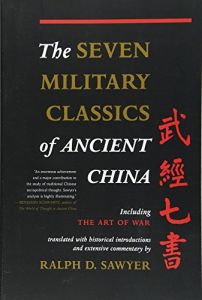Join getAbstract to access the summary!

Join getAbstract to access the summary!
Ralph D. Sawyer
The Seven Military Classics of Ancient China
including The Art of War
Basic Books, 1993
What's inside?
Business strategists often quote Sun-tzu; here’s why they could also quote ancient Generals T’ai Kung and Huang Shih-kung.
Recommendation
The parallels between business and warfare evoke images of brilliant generals leading armies and brilliant CEOs leading businesses. Platoons battle and businesses compete with bold, wily strategies and superior execution. Given these similarities, do the classic sagas of seven ancient Chinese military strategists have insight and wisdom that might benefit today’s business leaders? For the answer, read the “translator’s introductions” that open each chapter in sinologist Ralph D. Sawyer’s substantive book. His notes explain how these ancient strategists won their battles with the least possible military force. Sawyer presents them as sage theoreticians who were masters at outwitting their opponents. Unlike most Western military theorists, China’s ancient tacticians emphasized, “speed, stealth...flexibility,” still quite useful skills. getAbstract recommends this fascinating, deeply expert compilation to anyone who wants an educated overview of seven venerable Chinese military classics. Their authority and precision of thought will intrigue modern strategists as they have interested statesmen and military leaders throughout time.
Summary
About the Author
Ralph D. Sawyer, a scholar on Chinese warfare and strategic thought, is a fellow of the Centre for Military and Strategic Studies. His books include The Tao of Deception and The Tao of Spycraft, plus many translations including Sun-tzu’s Art of War and The Tao of War.



















Comment on this summary